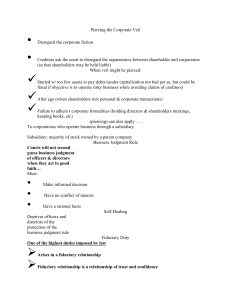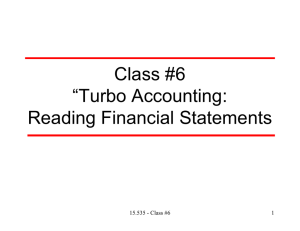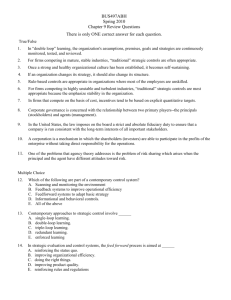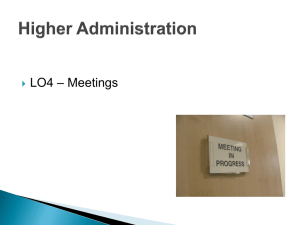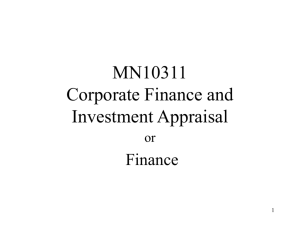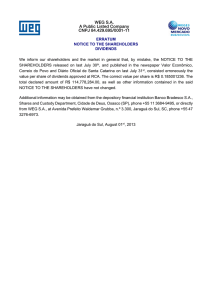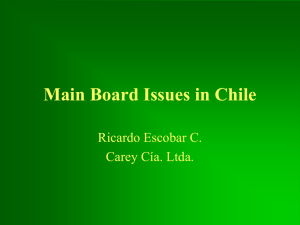15.617, Spring 2004 John Akula Lecture 11: 3/10/04
advertisement
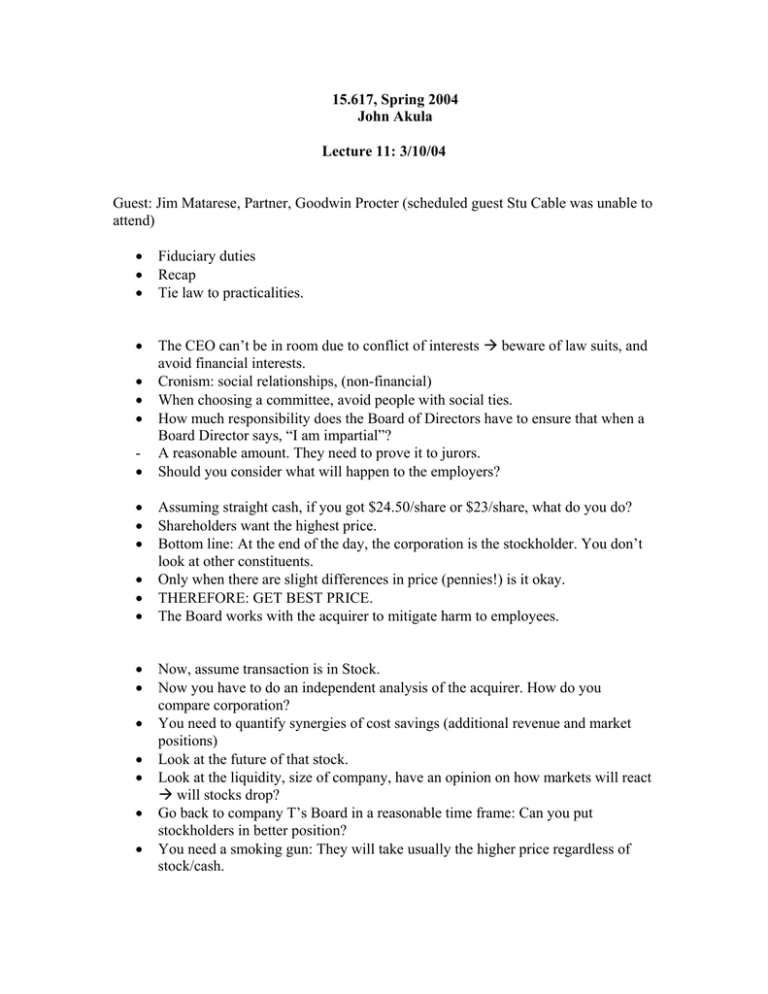
15.617, Spring 2004 John Akula Lecture 11: 3/10/04 Guest: Jim Matarese, Partner, Goodwin Procter (scheduled guest Stu Cable was unable to attend) • Fiduciary duties • Recap • Tie law to practicalities. • The CEO can’t be in room due to conflict of interests Æ beware of law suits, and avoid financial interests. • Cronism: social relationships, (non-financial) • When choosing a committee, avoid people with social ties. • How much responsibility does the Board of Directors have to ensure that when a Board Director says, “I am impartial”? - A reasonable amount. They need to prove it to jurors. • Should you consider what will happen to the employers? • Assuming straight cash, if you got $24.50/share or $23/share, what do you do? • Shareholders want the highest price. • Bottom line: At the end of the day, the corporation is the stockholder. You don’t look at other constituents. • Only when there are slight differences in price (pennies!) is it okay. • THEREFORE: GET BEST PRICE. • The Board works with the acquirer to mitigate harm to employees. • Now, assume transaction is in Stock. • Now you have to do an independent analysis of the acquirer. How do you compare corporation? • You need to quantify synergies of cost savings (additional revenue and market positions) • Look at the future of that stock. • Look at the liquidity, size of company, have an opinion on how markets will react Æ will stocks drop? • Go back to company T’s Board in a reasonable time frame: Can you put stockholders in better position? • You need a smoking gun: They will take usually the higher price regardless of stock/cash. • You have to tell shareholders everything—other bids, etc. • If there is a document that says there was a lower bid, there will be a lawsuit. They don’t’ care if they winÆ they just want to encourage you to settle. • How does the Board of Directors get a guarantee that company D can deliver? o Ask a bank to get you a letter of credit. o Have banker do an analysis to see how much company D can raise. o Commitment letters (opinions from various bankers) o Have a default plan o Charge a fee if financing falls through. • Beware of antitrust. • You wouldn’t take higher bid if there is execution risk. 1.) Act in good faith 2.) Best interest of shareholders. 3.) Reasonable, prudent care Business judgment rule: made up by courts, where courts will give Directors the final decisions if the Board is prudent. The stockholders have the burden to show that the Board has not self interest. • There are levels of judicial review. • Revlon: maximize shareholder value. You need to get the best price possible. (Does not apply to stock transactions.) • No Revlon duty for stock-to-stock transactions. In theory, you could take a lower bid (if long term interest of shareholder is considered). • Fairness: excise Director who has interests. • There is significant time between filing and shareholders • If it is a stock deal, what should you do? o Have a fixed exchange ratio transaction (it takes the upside and the downside) o Fixed number of shares is bad when there is downward price pressure. • Fiduciary out: walk away from transaction.


